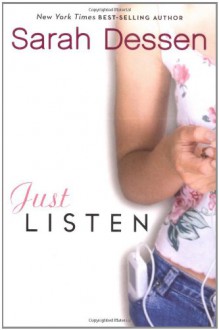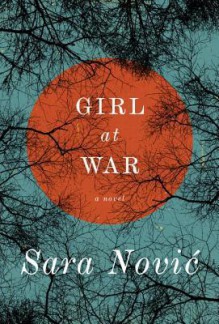Learn about different JavaScript characters; assertions, boundaries, quantifiers, flags, etc with the help of implementation examples. Study all the categories of characters associated with JavaScript along with their uses.

Learn about different JavaScript characters; assertions, boundaries, quantifiers, flags, etc with the help of implementation examples. Study all the categories of characters associated with JavaScript along with their uses.

There is a fine line between annoying and intolerable. Personally, I have danced across this line so often that I am very familiar with the difference. Unfortunately, there are some characters who are completely unaware that there even is a line.
All readers have met unlikeable characters sometime in their book adventures. These are the characters who make your blood boil and your veins bulge in frustration. For some reason or another, they get on your nerves. In fact, they are a common literary tool used to stir up emotion within the reader. Think about all of the romances that are hate-to-love. In the beginning, we all hated Rhys from A Court of Thorns and Roses (and even though some of us still hate him, you get the point), Will Herondale from The Infernal Devices, the Darkling from The Grisha series, even Haymitch from The Hunger Games. When I think about it, there are a lot of characters who started pretty high on my "I'd-love-to-watch-you-burn" list, but ended up on my list of favorite characters. I classify these characters as "unlikeable" since they rub me the wrong way sometimes, but have not completely lost their chance for my respect.
But, there is another kind of annoying character. The kind that crosses the line between decent indecency and hateful scumbag. These characters are definitely unbearable, but sometimes it can be hard to discern when they changed from merely unlikeable to full-blown intolerable.

This is a pleasant surprise. It's a Kindle First book I got a few months ago, along with the audio upgrade, that had so much more to it than I expected. At it's core the story is about four college girls who are held captive by a guy with a gun for reasons that blur between the personal and the political. But this isn't about some rejected college student who wants to take out his anger by showing power, it's more of a hostages make people listen situation.
Yoona is the protagonist and I loved the way she tells the story to Jaesung. It's not done in a way that makes it sound like she is relaying it to him later and that everything is fine. She talks to him as if he is her conscience. Jaesung is another character who is not in the room with them but he is still a part of it. You know from the beginning that Jaesung has something to do with why Lloyd, the gunman, has these girls in this room at gunpoint.
I appreciated Yoona, Jaesung, and Lloyd as characters, as would-be or possible revolutionaries. I loved the niavete they possess and the way each works through that in their own way and the way the interference, or not, of parents rang true to life for me. Some are very involved, others not so much or not at all. I couldn't help but feel for Yoona, not just in that room but as other events became known. Then there's Lloyd's unraveling, what brought him to the place, what motivates his conversations with the negotiator and I loved the negotiator. Much of the book isn't even about the room they are in but the way they all came to be there and these are the scenes that surprised me most.
I enjoyed the story embodied a part of American life by being about people who were the first or second generation to be born in the US, by being about people who still have ties to the land of their parents. I appreciated it as a story about Korean-Americans, which I feel is a group we don't hear much about, but also about Korea and a dorm room in the US. The story elements fit together beautifully and the only thing I would wish to change about it was a little more denouement.
Also, I really love this cover. Its perfectly captures the feel and tone of the story without giving anything away. Every time I see the cover since finishing the book, I get a little wistful about the story and all the characters and everything they wanted to do and everything they wanted to fix about the world.

This was a much better book than I expected. The way it handled serious issues was careful and deliberate.
Trigger warnings for rape and sexual assault.
Given the description on the book page, I wasn't really prepared for what I found in this book. As mentioned above, the issues were handled with great care. While rape was at the center of the story, it also has mention of and dealings with eating disorders but never blames the victim. Owen is important, but I felt like this description inflates his importance. I expected a bit of a rom-com type story where Annabel's life isn't perfect but her problems aren't quite being the victim of a violent crime, you know what I mean?
Yes, her life wasn't perfect before the rape either and that's obvious from it's first mention, but that's not the point either. Owen is also not an "Edward" like figure as the description also led me to believe. Maybe it's just my own misguided interpretation but I feel like "intense" is one of the words used in yound adult stories to denote a boy who turns your life upside down and then is borderline abusive in some way. Owen is absolutely wonderful and his version of intensity is more the insistence of honesty and his level of comfort in his own skin than the way he broods or tries to control her life, neither of which are things he does.
I loved absolutely every character, except one, of course. They all worked well to propel Annabel's character growth. It was well paced and I enjoyed both the family drama and the school drama, especially the work they worked together to prompt Annabel to act. I thought it presented a great narrative for how such events come into being and how people respond to them.
I borrowed the audiobook from the library, which is read by Jennifer Ikeda. She's a fantastic narrator, having won a few awards for it already.

This is an enlightening story about what it can be like to grow up in a civil war and then to escape to another country that was mostly dissociated with it. Or be forced out, depending on how you look at that part of it but I don't want to spoil anything either.
While parts of the story can be a bit explicit, I wouldn't call it any more graphic or triggering than the Hunger Games. That said, I can't say for sure what would trigger someone who has lived through such events, so I'll gladly change this if someone disagrees.
As stated in the synopsis, the story follows Ana Juric. It's a bit of a coming of age story and I personally liked the time jumps. For me, the most striking thing about the story was the way social protocol in the US silenced Ana about her experience. I've seen this pan out similarly with my mother, who lived in Cuba for a while in her childhood. She doesn't talk about it much but will sometimes with the right opening. She's always felt that people don't really want to hear about any of it, like anyone would only were ask to be polite but really preferred she not mention it, which couldn't be further from the truth for some of the family.
To me, it was fascinating to hear about it. Then again, that puts one in the other bind that we get to see Ana go through as well. She fights off being disaster or tragedy porn and one of the easiest ways to do that is to simply not tell people that you were a part of whatever the disaster is. But the story is really about her realization that she can't ignore what she was a part of just because she doesn't live in that world anymore. It's about reconciling her past and her present and maybe figuring out where that leaves her to go in the future.
Many parts of her story are those that we hear of here when we do talk to refugees and immigrants who come from war-torn places, but I didn't feel like it was wholely stereotyped. The writing is what makes the difference. Much of it reads a little like a young adult book, but I think that's mostly because it's told in the first person perspective of a new adult who is remembering her past. I like that perspective choice because it relates a deeper understanding of the thought process of a person in those situations as they carry out whatever actions they do. The movement in time help in the endeavor to give both her perspective as she's doing things and the way she feels about it later.
Honestly, the only thing I didn't really like about the story was that I felt like the end of the book snuck up on me. I didn't feel like there was a specific climax and it felt unresolved. Though I didn't like that as an ending for a book, I understand it's beauty as an ending. That happens sometimes where the perfect ending isn't a particularly satisfying one.
That didn't ruin the book and I'd still recommend it to anyone who enjoys historical fiction or books with female protagonists or diverse reading.